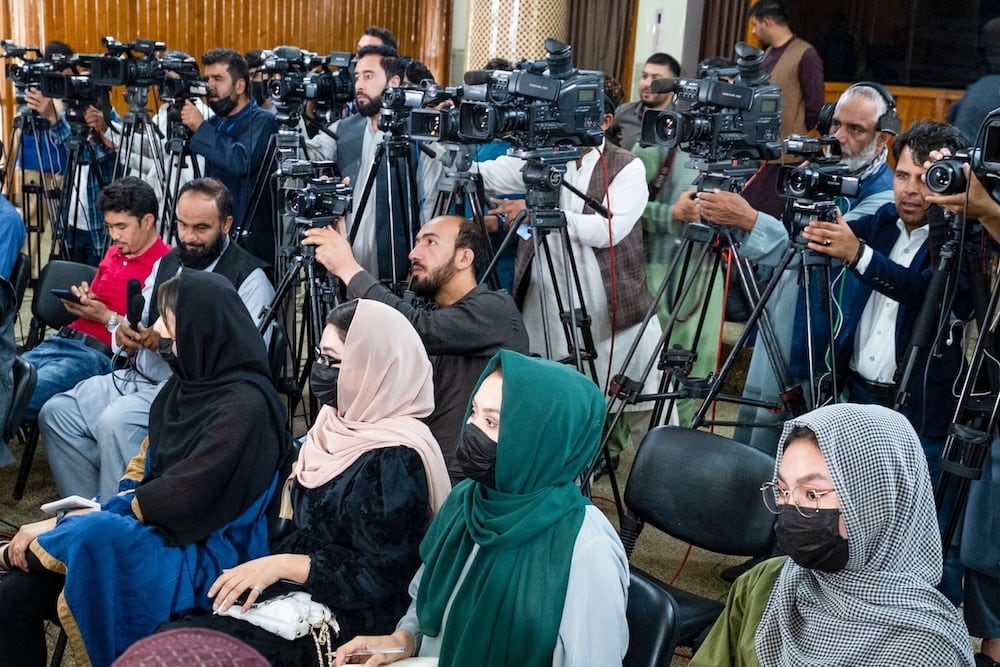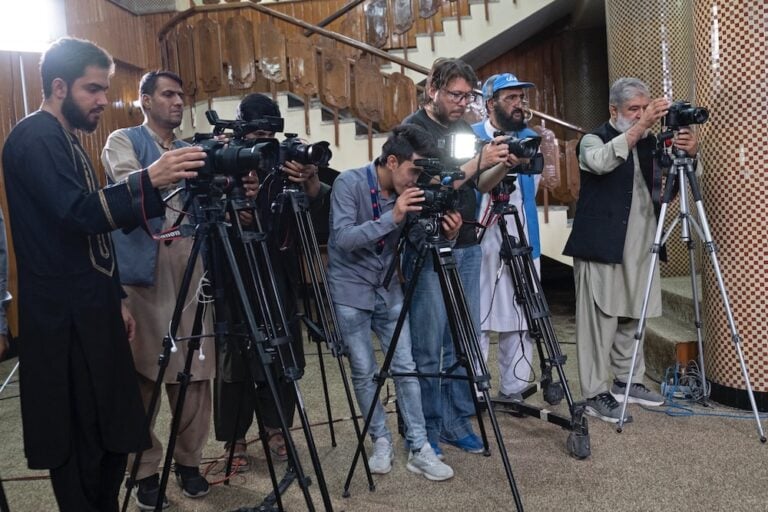The report documents at least 139 violations of media and journalists' rights, including 80 threats and 59 arrests.
This statement was originally published on afjc.media on 17 March 2024.
The Afghanistan Journalists Center (AFJC) has released its annual report on media freedom in Afghanistan for the 1402 Solar year, detailing significant challenges and violations faced by journalists throughout the year, hindering their ability to work effectively.
The report, which was published today on the occasion of National Journalist’s Day on March 17, highlights the worsening state of media freedom in Afghanistan during the 1402 Solar year (March 2023 to March 2024), with media professionals experiencing severe restrictions on their fundamental rights and legal protections. The report points to widespread violations occurring throughout the year.
AFJC’s annual report reveals that pressures on media and journalists increased in intensity compared to previous years, with directives from the Taliban government and local Taliban authorities being major contributors to these challenges, despite the existence of the Media Law.
While the consequences of non-compliance with media directives are not explicitly stated, journalists and media outlets have faced threats, imprisonment, and punitive measures such as temporary or permanent bans for disregarding orders. Violations of journalists’ rights are systematic and are perpetrated by both the Taliban government and individual officials in various provinces.
The report also notes the negative impact of ambiguous guidelines on media production and content, with Taliban officials rarely granting interviews to journalists and spokespersons often unavailable to answer questions. Despite efforts by the Ministry of Information and Culture to address violations, the report emphasizes the need for concrete actions to protect the rights of journalists and media professionals in Afghanistan.
In 1402, the report documents at least 139 violations of media and journalists’ rights, including 80 threats and 59 arrests. While targeted attacks resulting in injury or death did not occur during this period, concerns persist regarding the suppression of media and freedom of expression by Taliban authorities. The report identifies eight instances of media work bans and cases of radio station managers facing prosecution and imprisonment.
The report highlights the role of the Taliban General Directorate of intelligence and the Ministry of Virtue and Vice in suppressing media and intimidating journalists, while urging for measures to improve the situation and safeguard the rights of journalists and media professionals in Afghanistan.
To access the full text of the annual report, please visit this link.



